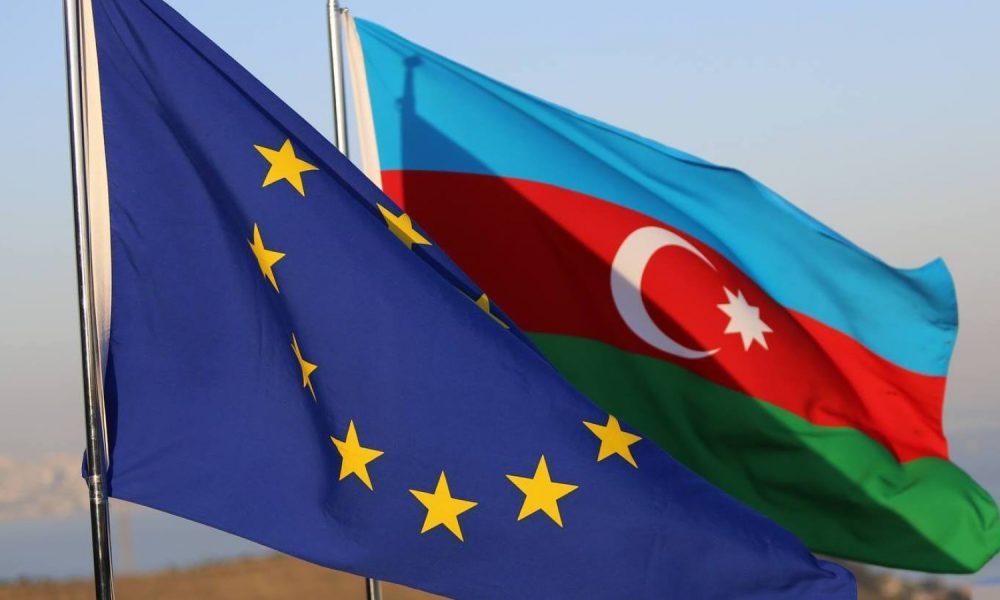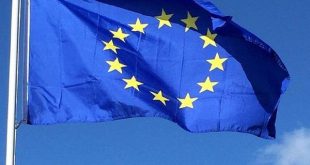
Azerbaijan and European Union agreed to boost their already existing cooperation in energy sector through a Memorandum on Strategic Partnership in the field of Energy. This agreement enables EU to meet its acute gas shortages in the wake of Ukraine Russia War and doubles Azerbaijan’s gas exports to EU in next five years. President of Azerbaijan Ilham Aliyev and President of European Union Ursula von der Leyen personally inked the agreement in Azerbaijan this week.
This agreement is significant in the backdrop of the Ukraine-Russia war, where Russia significantly reduced the energy supplies to various European countries leveraging its mass production. This agreement provides a timely opportunity for the EU to consolidate a new gas market for its energy security and earns Azerbaijan a larger share in European market.
It will allow Azerbaijan to double its outflow of gas towards the European Union covering extra 4 billion cubic meters of gas but will increase to 20 billion cubic meters by 2027. There are prospects of contract revival beyond 2027 because energy demands in Europe are unlikely to go down. This bilateral convenience serves best for the socio-economic development of both partners.
The agreement on energy between Azerbaijan and European Union is not the first of its kind because there exist healthy cooperation between both partners. They have already signed a MoU in 2006 and a 2011 Declaration on Southern Gas Corridor establishing a 3300 km long pipeline between Europe and Azerbaijan. Given the current political environment around Europe, the stakes for Azerbaijan will increase in the energy security calculus of the EU.
More gas from Azerbaijan inflow to the European Union will change the energy map of Europe and larger Caucuses. It is line with long standing European urge to diversify its energy supply under European Union Energy Security and Solidarity Action Plan. European Union believes that a reliable partner is something Union values the most.
In return, the EU may plan to invest in renewable projects such as wind and solar energy in Azerbaijan and regional markets. The potential of solar and wind power production in Azerbaijan is 9200 MW, while the potential of wind energy in the Caspian region is 157 gigawatts.
The leadership of both parties are also evaluating the scope of another agreement, possibly covering economic diversification, investment, trade, and climate change. Europe is not self-reliant in its energy needs despite massive investments in renewable energy projects; hence it needs reliable and sustainable partners.
The scaling down of Russian gas supplies to consumers in European Union and subsequent price hike in energy products forced it to look for new markets. Azerbaijan is not only the next market but an already thriving market devoid of any implications from any regional or global power.
Both leaders are committed to strengthen their cooperation in energy and other prospective areas. President Aliyev said that energy cooperation tops the Foreign Policy agenda of Azerbaijan, and it looks forward to deepening the cooperation with European Union. The President of the European Commission clearly stated that the agreement reflects the renewed commitment of the EU to drift away from Russian markets, and Azerbaijan is the new market.
Any country with enormous energy production and networks of pipeline with Europe will be important for the richest economic bloc in the world. Azerbaijan remained a smaller but consistent and reliable energy supplier but this agreement elevated its geo-economic profile beyond Central Asia due to instability in the global energy market in the region.
Azerbaijan will be able to get modern technology, investments, and development in multiple sectors, including clean energy and climate change. In addition, European Union will pump billions of dollars into its economy in exchange for gas, adding revenue to its foreign exchange reserves and value to growth and development. European Union is ready to invest in Wind and Solar energy projects in the Karabakh region, giving legitimacy to Azerbaijan’s influence on the energy markets in region.
The market access of Azerbaijan’s products in Europe are expected to increase in the coming years. Azerbaijan’s the biggest trade fleet in the Caspian region, operational sea port, modern infrastructure, shipbuilding yard, and railroad network will enable connectivity and trade with Europe and other adjacent regions. With these strategic resources, Azerbaijan will be able to make better foreign policy choices and play significant role in the growth of entire region.
Muhammad Asif Noor
Director, Centre for Central Asia and Eurasian Studies – Institute of Peace and Diplomatic Studies
 Oval Useful news from Azerbaijan and Caucasus
Oval Useful news from Azerbaijan and Caucasus


